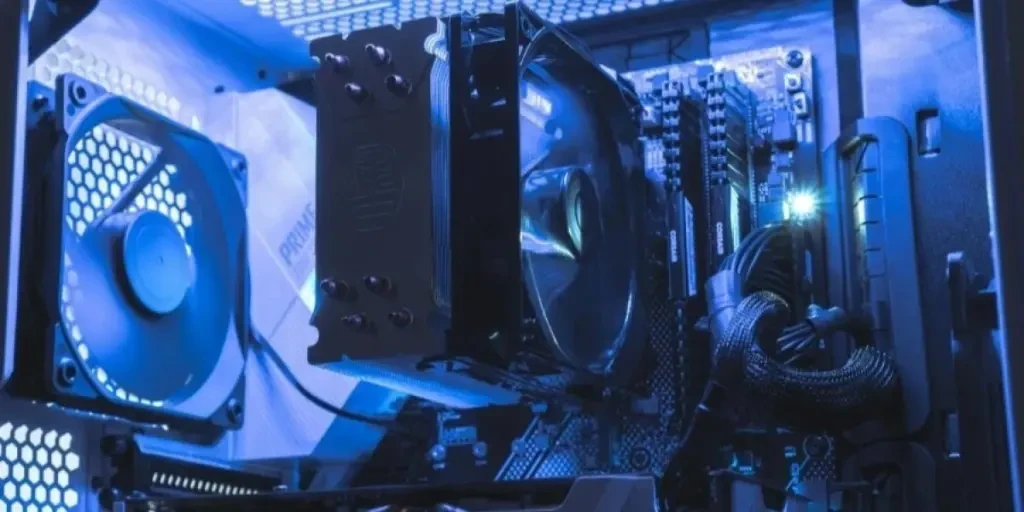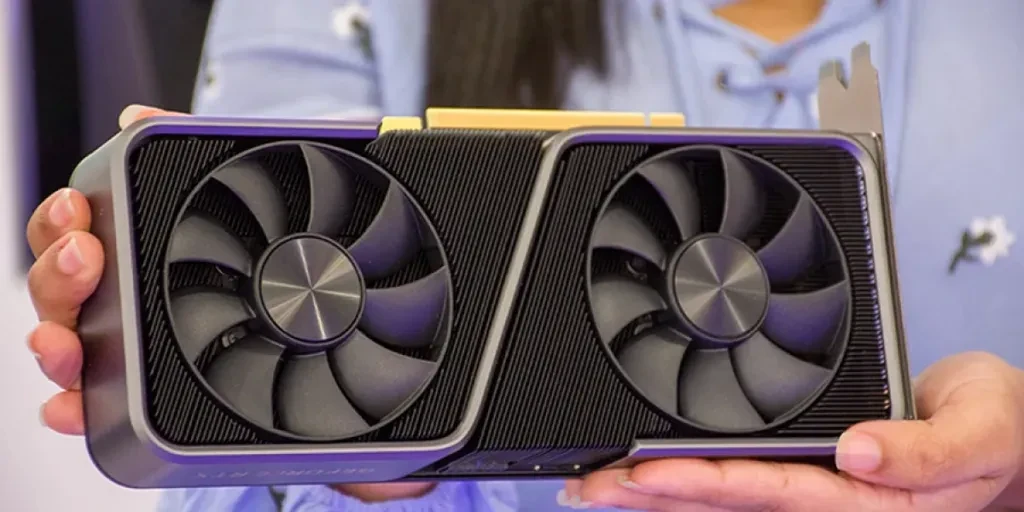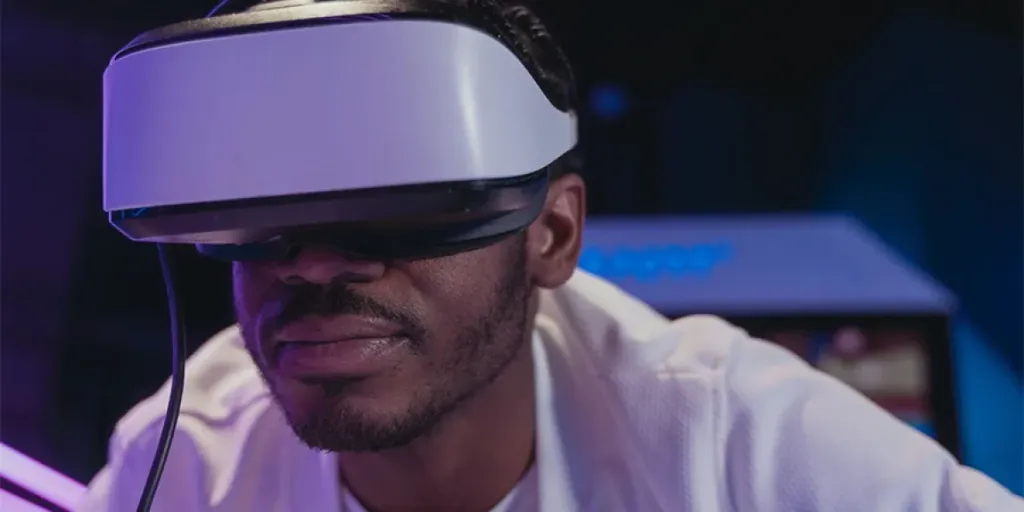In today’s paced technology landscape, computer cases and towers have evolved beyond function components to become essential elements that enhance both the performance and aesthetic appeal of modern systems. As market preferences shift towards modern designs and sustainable materials, staying up-to-date with these trends is vital for professionals looking to make informed decisions.
This article explores the current market trends and discusses the advancements influencing consumer preferences and setting new benchmarks in the industry landscape. It is crucial to grasp these developments for individuals interested in investing in products that combine state-of-the-art technology with attractiveness. Examining models and shifts in the market scene offers a roadmap for making informed purchasing choices within the dynamic realm of computer cases and towers.
Table of Contents
● Understanding the evolving computer cases market
● The design revolution: Innovations shaping the future
● Leading models that are setting market trends
● Conclusion
Understanding the evolving computer cases market

Market scale and growth
The computer case and tower industry is on the rise due to technological advancements and the growing demand for high-performance computing devices. In 2023, the market reached around USD 4.24 billion. It is expected to hit USD 6.41 billion by 2030, with a growth rate of 5.99%. Big players, like Cooler Master, Corsair, and Thermaltake, remain at the top of the game by using advanced designs and cutting-edge materials to secure significant market portions. The market’s growth is mainly credited to the increasing interest in gaming and the shift towards building custom PCs at home, which has driven the need for visually pleasing computer cases.
CAGR and market changes
The computer case industry is changing quickly as more people prefer environmentally friendly designs, with both practicality and eco-friendliness in mind. Experts predict that the market will continue growing due to the inclusion of cooling system improvements and smart technology features. Manufacturers are now concentrating on creating cases that accommodate hardware upgrades and excel in cooling efficiency and energy conservation. The move to online shopping and e-commerce platforms has significantly expanded the market’s reach by making products easily available to global audience.
Shifts in consumer preferences
Nowadays, More consumers prefer DIY builds and gaming-focused designs tailored for gaming enthusiasts. This trend impacts market trends and the development of products in the market today. There’s an uptick in demand for small form factor (SFF) cases that balance size and performance, driven by gamers and professionals who want to save space without sacrificing power. Furthermore, there’s an increasing interest in cases with features like RGB lighting and tempered glass panels, allowing users to put their touch into their builds. Manufacturers are responding to changing preferences by creating products tailored to the needs of customer groups, which is further fueling market expansion even more.
The design revolution: Innovations shaping the future
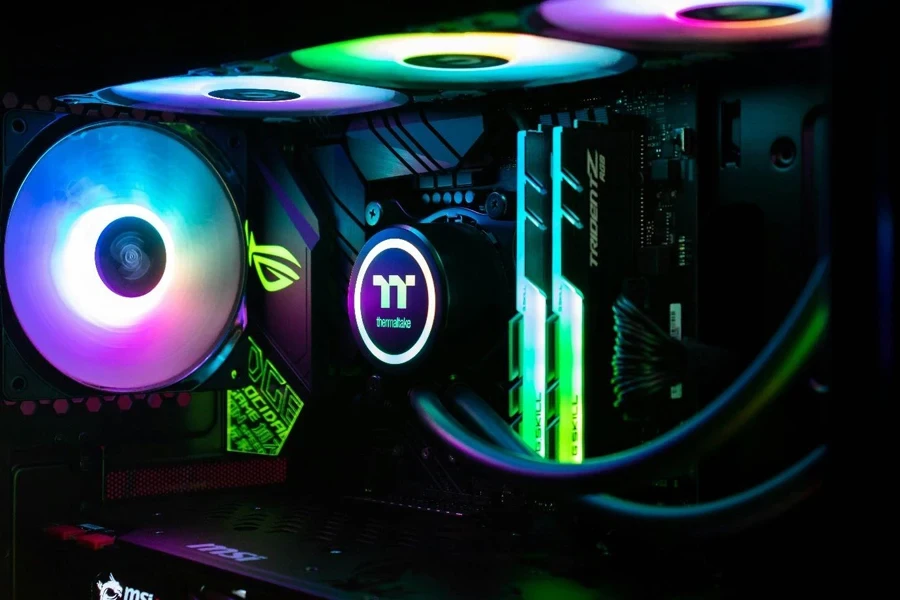
Aesthetic transformations
The development of computer enclosures has emphasized aesthetics as a priority element. The inclusion of RGB lighting and tempered glass panels is becoming more prevalent. Newer enclosures come equipped with RGB LEDs that permit users to manage the lighting effects and hues using software; this allows for a coordinated light display spanning various components. Additionally, using 4mm to 5mm tempered glass side panels offers a glimpse into the internal parts, elevating the visual charm while ensuring sturdiness.
Simplified designs are becoming increasingly popular, some cases feature sleek aluminum exteriors and concealed cable management systems to keep things looking neat. Interchangeable front panels with magnets make it simple to personalize and upkeep your setup effortlessly, highlighting the harmony of style and practicality in modern cases today.
Compact and eco-friendly designs
The demand for eco-friendly computer case designs has driven advancements in the construction of computer cases. Small form factor (SFF) cases now commonly accommodate components like full-sized GPUs measuring up to 330mm and liquid cooling radiators up to 240mm in length. These condensed designs often feature modular drive cages and easy-to-install SSD mounts that conserve space and streamline the building procedure.
When it comes to materials used for cases nowadays, they are commonly crafted from recycled aluminum and steel, and some are even using biodegradable plastics for smaller parts as well. The trend towards modularity is also noticeable, with cases designed for upgrades and repairs, like having motherboard trays and interchangeable front I/O panels, . This helps reduce the necessity for complete replacements and ultimately cuts down electronic waste.
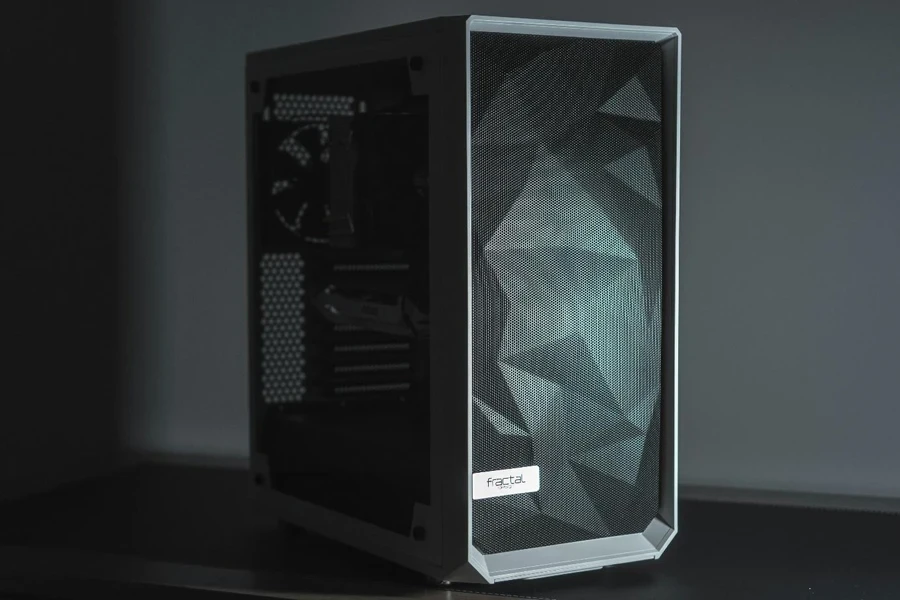
Advanced cooling solutions
Cooler installation has become a priority in the design of PC cases due to the increasing power of CPUs and GPUs, which produce a substantial amount of heat. Modern cases are frequently designed with cooling zones that cater to components like the CPU, GPU, and power supply. They utilize static pressure fans with designed blades to propel air through compact radiators and accommodate radiators up to 420mm long for improved liquid cooling capabilities. Sometimes, removable dust filters are designed with intricate mesh patterns to stop dust accumulation and uphold proper airflow.
For higher-tier setups, computer cases provide options for liquid cooling loops, featuring built-in pumps and reservoir mounts and pre-made holes for tubing installation. Intelligent cooling setups incorporate PWM fan hubs and built-in temperature sensors to enable automatic fan speed changes according to current thermal conditions. This keeps systems cool during intense usage while minimizing noise levels.
Leading models that are setting market trends
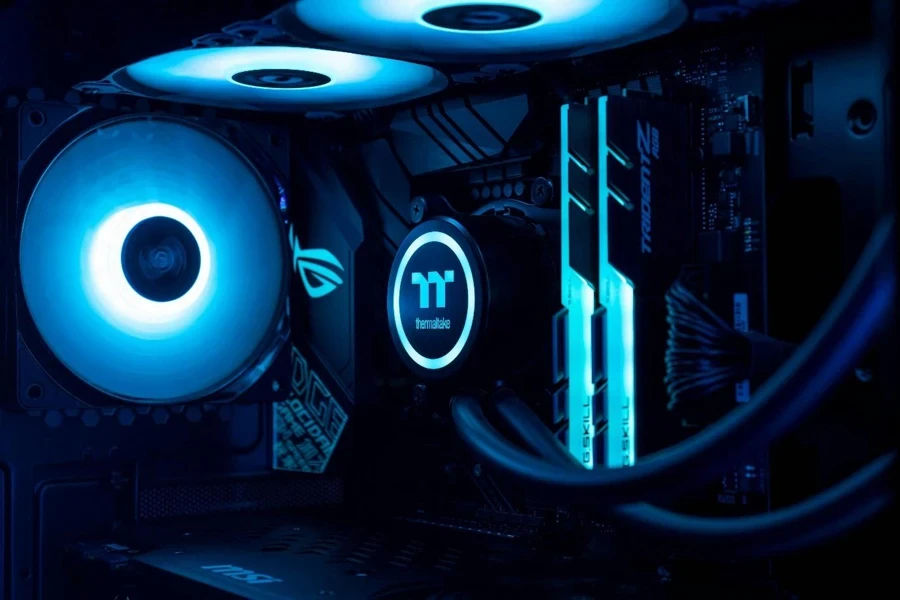
Hyte Y70 Touch and its revolutionary design
The Hyte Y70 Touch has gained attention in the market for its groundbreaking design that redefines PC case standards. With its 4K touchscreen incorporated into the panel, this case provides a new level of user engagement that sets it apart from others in the industry. The touchscreen can showcase system details, manage RGB lighting settings, and serve as a display screen, seamlessly blending with the case’s look. The Y70 Touch also features an interior accommodating EATX motherboards and GPUs up to 390mm, perfect for top-notch gaming setups and professional workstations. Moreover, it comes with a chamber cooling design, creating thermal zones to enhance airflow and cooling performance for the CPU and GPU.
Fractal Design Meshify-C’s impact on mid-tower cases
The Fractal Design Meshify-C has set a standard for mid-cases by focusing on both keeping components cool and looking sleek at the same time. Its unique mesh front panel isn’t there just for looks; it improves airflow significantly, making it a standout choice for cooling powerful hardware. This case can accommodate up to seven 120mm fans or five 140mm fans. It can even support radiators up to 360mm in size, giving users plenty of options for creating air or liquid cooling setups. The small size of the Meshify C doesn’t sacrifice its space; it provides room for large GPUs and ATx motherboards comfortably with a sleek black design that appeals to gamers and professionals alike. This is because of its minimalist appearance and a tempered glass side panel that allows for easy viewing of the components inside.
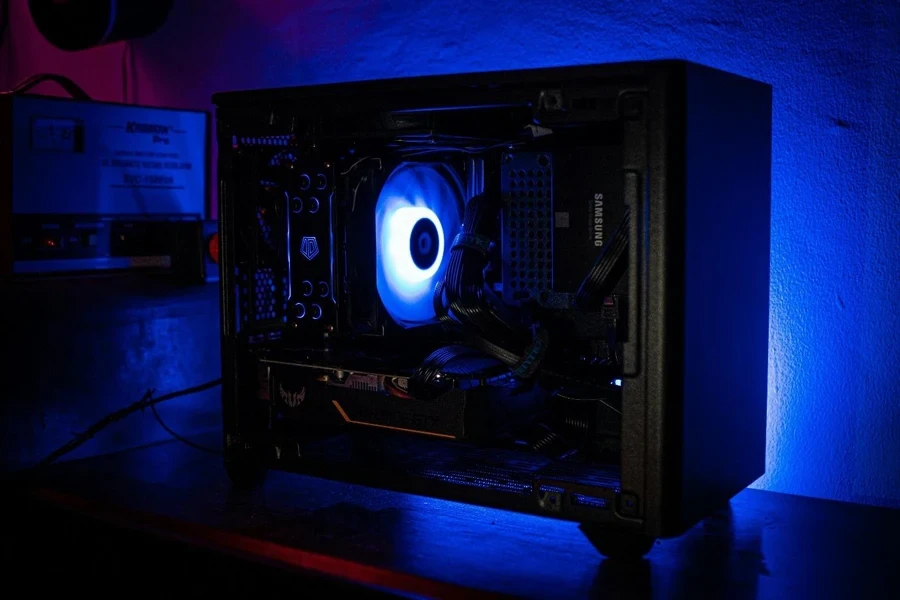
Asus Prime AP201: The compact powerhouse
The Asus Prime AP201 has gained recognition as a compact tower case that maintains performance without compromising on size limitations. The AP201 is notable for accommodating ATX power supplies and GPUs up to 338mm long, a feature uncommon in cases of its stature. The mesh design around the case promotes airflow, essential for keeping temperatures ideal within limited spaces. The AP201 design simplifies assembly and upgrades by featuring quick-release panels and a roomy interior for efficiently organizing cables without needing tools. This version is especially popular among individuals interested in constructing a top-notch PC within a compact size range that is ideal for gaming or professional purposes.
Other notable models influencing market preferences
Many models are making a difference in the market by offering distinct features to meet the specific needs of users. The Cooler Master Qube 500 Flatpack is remarkable with its user-friendly design, which allows users to assemble the case themselves. This feature attracts hobbyists who find joy in building and enjoying the result. The Phanteks Evolv Shift 2 has become quite popular for its versatility. It is an ITX case that fits well in both a living room and on a desk due to its distinctive vertical layout and sufficient room for liquid cooling systems. Additionally, the Antec Dark Cube has garnered attention for its structure and small footprint, providing a customizable case capable of accommodating high-performance components in an easily transportable form factor. The emergence of these models showcases how the market embraces innovation and unique designs tailored to diverse preferences and needs.
Conclusion
The market for computer cases is constantly changing due to improvements in technology and design as consumers shift to what they prefer nowadays. Computer cases are no longer about being functional but have become key players in boosting performance and keeping systems cool while looking good. Examples such as the Hyte Y70 Touch and Fractal Design Meshify C showcase this shift by providing features that meet the needs of both high-performance users and those who value flair.
The move towards environmentally friendly designs alongside cooling options mirrors the current direction of the consumer electronics industry, a blend of practicality and eco-consciousness with a personal touch in mind. This continuous progression emphasizes the significance of keeping up to date to make future-ready investments in this ever-changing field.
